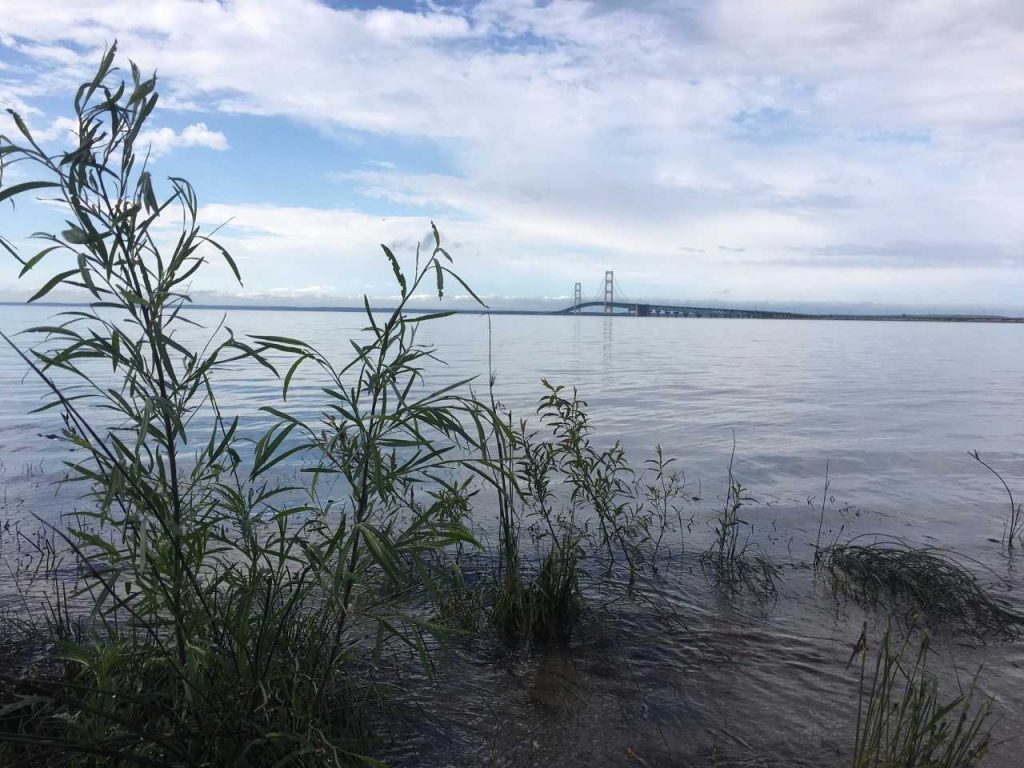MichMash: Trump Touts Great Lakes Record, But Some Are Skeptical
A look at the presidents record on the Great Lakes and why it has drawn the ire of conservation groups.

As presidential candidates make their appeals to Michigan voters, President Donald Trump is touting his record on protecting the Great Lakes. But environmental groups say his legacy is one of deregulation and cutbacks.
MichMash hosts Jake Neher and Cheyna Roth take a look at Trump’s record on the Great Lakes.
Subscribe to MichMash on iTunes, Spotify, Google Podcasts, NPR One or wherever you get your podcasts.
Funding for Great Lakes Restoration has been a struggle
Environmentalists are concerned that a lot of rollbacks in recent years by the Trump administration are going to have a lasting, harmful impact on the Great Lakes.
This past year was the first year that Trump agreed in his budget proposal to fully fund the Great Lakes Restoration Initiative (GLRI). That’s a program that puts hundreds of millions of dollars toward Great Lakes restoration, cleanup, and protection. But it took years for the president to stop fighting pretty much all lawmakers, who consistently put the funding into the final budget, on this issue.
Regulatory rollbacks could have lasting effects
But while the president is starting to put more money toward the Great Lakes – including repairing the Soo Locks – it’s the regulatory rollbacks that have environmentalists really concerned.
An analysis by the New York Times found that as of July 2020, the president is in the process of, or has completed, rolling back 100 environmental rules. And some of them directly impact the Great Lakes.
For example there’s the weakening of regulations of power plants. Those plants, particularly coal plants, emit toxins like mercury and lead into their waste water which get into the air and nearby lakes. The Environmental Protection Agency (EPA) has also scaled back pollution protections for certain tributaries and wetlands that were regulated under the Clean Water Act by the Obama administration.
Big polluters enjoying big loopholes
There’s also a concern with polluters. In March, the Trump administration announced that it would stop the enforcement of some environmental rules, including compliance with routine monitoring and reporting of pollution. The EPA also announced that it wouldn’t seek penalties against organizations that fall out of compliance as a result of the COVID-19 pandemic.
When asked by MLive, the EPA said it did not curtail their enforcement during the pandemic, but a March 26 EPA memorandum specifically states: “The EPA does not expect to seek penalties for violations of routine compliance monitoring, integrity testing, sampling, laboratory analysis, training, and reporting or certification obligations in situations where the EPA agrees that COVID-19 was the cause of the noncompliance”
That’s not the only concern environmentalists have when it comes to regulating pollution. They say stopping for the pandemic is just another example.
A report by the Environmental Law and Policy Center, using EPA data, found that the average number of regulatory cases being initiated and concluded by the EPA’s Region 5, which covers Michigan, Illinois, Indiana, Ohio, Minnesota and Wisconsin, against polluters has dropped more than 28% since Trump took office. And compliance with environmental regulations in the Great Lakes is also declining.
While the impact of these rollbacks might not be obvious now, environmentalists say the effects will be felt for years to come,
More From MichMash
Cities Brace for Low Census Response Rates As Deadline Nears
Three Pieces of Advice to Make Sure Your Vote Counts This November
Why Michigan’s Recreational Marijuana Industry Isn’t Helping Those Harmed by Drug Policies
Trusted, accurate, up-to-date
WDET is here to keep you informed on essential information, news and resources related to COVID-19.
This is a stressful, insecure time for many. So it’s more important than ever for you, our listeners and readers, who are able to donate to keep supporting WDET’s mission. Please make a gift today.
